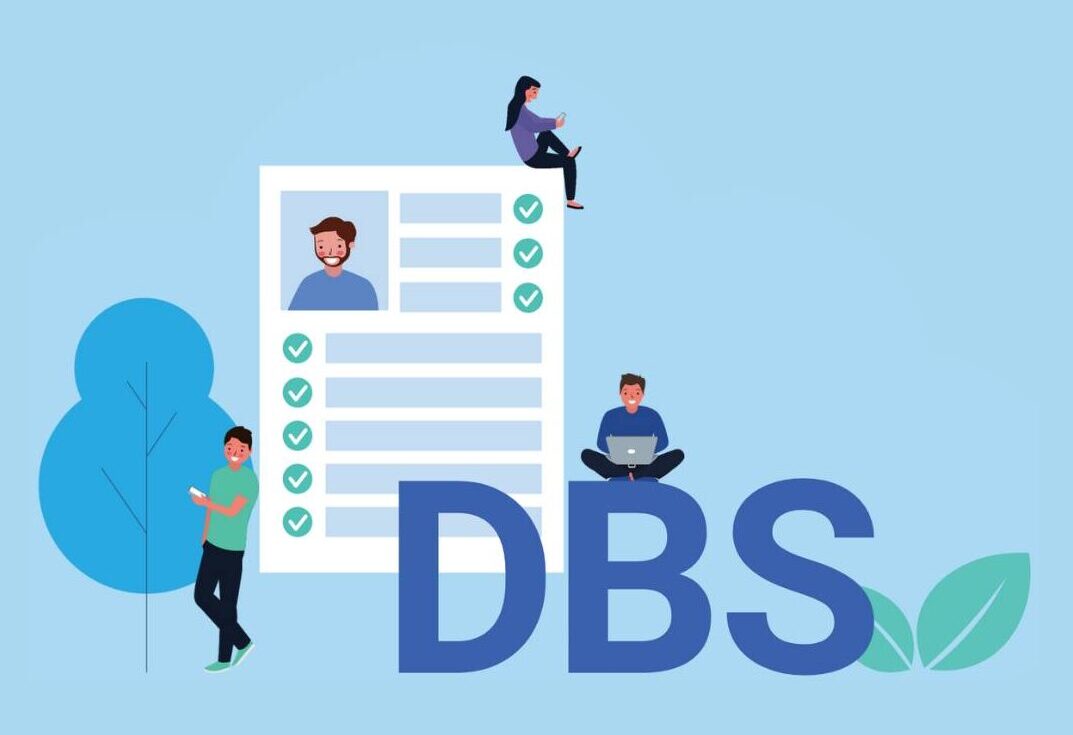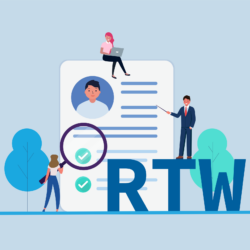An employer’s guide to DBS checks

The latest DBS guidance allows employers to complete identity checks remotely using digital verification technology through certified Identity Service Providers (IDSPs), provided applicants have eligible documents.
Previously, identity verification always required an in-person review of physical documents via the manual ‘three-route’ process. The addition of a Digital Scheme option offers employers greater flexibility, streamlining the DBS checking process.
As a certified IDSP, we’re here to help you understand how these updates impact your DBS checks.
What is a DBS check and why is it so important?
A DBS check, processed by the Disclosure and Barring Service, allows employers to review a candidate’s criminal record. It helps ensure safe recruitment decisions and prevents unsuitable individuals from working with vulnerable groups. In sectors like healthcare or childcare, a DBS check is often legally required.
Formerly known as a CRB check, there are different levels of DBS checks, each providing varying levels of detail based on the role’s requirements.
- A Basic DBS Check shows unspent convictions and conditional cautions on a criminal record. It can be requested by individuals or employers and is commonly used for pre-employment checks.
- A Standard DBS Check includes both spent and unspent convictions, along with cautions, reprimands, and warnings. It is typically required for roles such as those in financial positions.
- An Enhanced DBS Check provides the same information as a Standard Check but also includes relevant non-conviction information from police forces. It is required for roles involving regulated activities, such as working with vulnerable groups.
- An Enhanced DBS Check with Barred Lists includes all the information from an Enhanced Check and additionally indicates whether the applicant is on a barred list, restricting them from certain roles.
Verifying identity for DBS
As part of a DBS application, employers must confirm the applicant’s identity and current address, which can now be done either physically or digitally. The required identity documents vary depending on the chosen validation method.
For instance, an in-date British passport is sufficient for digital identity checks, whereas the manual process requires an employer to see additional documents like a driving licence and bank statement.
For detailed ID checking guidelines, visit:
https://www.gov.uk/government/publications/dbs-identity-checking-guidelines
Digital (GPG45) identity profiles for DBS
Employers can choose whether to use digital identity verification, but if they do, it must be conducted by a certified Identity Service Provider (IDSP) approved against the government’s digital DBS Scheme. IDSP checks must achieve a Medium Level of Confidence for Basic DBS checks and a High Level of Confidence for Standard and Enhanced checks.
The methods used to verify an applicant’s identity are known as ‘identity profiles,’ which vary between IDSPs. Some profiles require App-based RFID chip scanning, while others rely on specific document combinations without App installation, offering different levels of flexibility and ease for candidate
How the TrustID services meet DBS scheme requirements
TrustID’s DBS checks offer digital identity verification with different confidence levels. For basic checks our services validate to a Medium Level of Confidence and require one eligible biometric document, while for Standard and Enhanced checks we validate to a High Level of Confidence. Depending on the service you choose, RFID chip opening is required for some Standard and Enhanced checks.
For Enhanced checks, two documents are required, including a primary biometric document and a secondary document like a UK driving licence or ICAO-compliant passport.
How does a digital DBS check work?

Why should you consider digital identity validation for DBS?
- Remote Verification: No need for physical documents or in-person appointments.
- Streamlined: Combine DBS and Right to Work checks in one process.
- Fast & Flexible: the verification is quick and easy for your applicant and you will receive results in minutes. The service is accessible anytime, anywhere.
- Secure & Affordable: Certified, compliant service at a low cost.
Interested in finding out more? You can request a copy of our full guide here that details each section further and provides the answers to our frequently asked questions.
- For the latest DBS news, please visit the Home Office website.
- If you’d like to find out more about our DBS service, you can read additional information on our website.
- Or get in touch with our expert team: enquiries@trustid.co.uk | 0118 466 0822
Sign up to receive updates
Receive notifications from TrustID direct to your inbox. Simply fill out your email address in the form below.
Want to find out more?
We’d be really happy to chat through your requirements and offer advice on the best service for your business.
Tel: 0118 466 0822 or email us.
Request a callback


